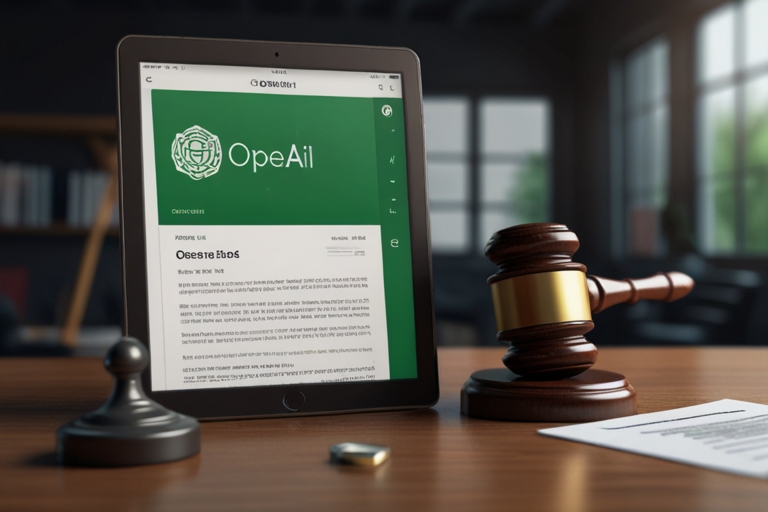
TL;DR
- OpenAI condemns Robinhood for issuing “OpenAI tokens,” clarifying they do not represent equity in the company.
- OpenAI says it was not involved or consulted and explicitly disavows the tokens.
- Robinhood says tokens are linked to a special purpose vehicle (SPV), not direct stock.
- Robinhood stock surged following its announcement, amid concerns over tokenized access to private companies.
- OpenAI joins a broader trend of private firms resisting unauthorized share representations.
OpenAI: “These Tokens Are Not Equity”
OpenAI has issued a public rebuke of Robinhood’s new initiative offering so-called “OpenAI tokens” to European users, saying the sale is unauthorized and misleading. In a direct post from its official newsroom account on X, the company stated:
“These ‘OpenAI tokens’ are not OpenAI equity. We did not partner with Robinhood, were not involved in this, and do not endorse it. Any transfer of OpenAI equity requires our approval — we did not approve any transfer. Please be careful.”
The stark warning follows Robinhood’s announcement of a plan to offer tokenized exposure to shares of high-profile private companies like OpenAI and SpaceX — assets typically inaccessible to retail investors.
Tokenization via SPVs: Not Real Stock
Robinhood is reportedly offering these tokens through a special purpose vehicle (SPV) — a financial entity that holds shares of a private company. Investors purchasing the tokens don’t own OpenAI stock directly; instead, they hold tokenized contracts tied to the value of an SPV that owns shares.
According to Robinhood’s Help Center, buyers are acquiring:
“Tokenized contracts that follow [stock] price, recorded on a blockchain. You are not buying the actual stocks.”
Robinhood spokesperson Rouky Diallo clarified that the initiative is part of a limited giveaway meant to demonstrate “indirect exposure” via Robinhood’s own stake in an OpenAI-related SPV.
Still, OpenAI is pushing back hard, stating clearly that no equity was transferred or approved, and that any suggestion otherwise is unauthorized and misleading.
Robinhood’s Position: “Exposure, Not Ownership”
Robinhood CEO Vlad Tenev defended the program on X, arguing that although these tokens are not technically equity, they still “give retail investors exposure to these private assets.”
Tenev further framed the move as a first step toward a larger “tokenization revolution”, adding that more private companies have expressed interest in joining the effort.
“Our giveaway plants a seed for something much bigger,” he said.
Market Reaction: Robinhood Shares Spike
Following the token announcement, Robinhood’s stock price surged to an all-time high, reflecting investor enthusiasm over the company’s potential to pioneer a new kind of retail-focused equity access.
However, the legal ambiguity of offering tokenized access to non-publicly traded firms is already drawing fire. Companies like OpenAI — and more broadly, the private markets — are concerned about how such tokens distort perceived ownership and valuation.
Private Startups Push Back Against Unofficial Share Access
This isn’t the first time private companies have challenged unauthorized secondary market behavior. In recent months, Figure AI issued cease-and-desist letters to brokers marketing its stock without company consent.
In these cases, companies aren’t just protecting legal interests — they’re also defending the accuracy and control of their private equity valuations, which may impact future fundraising or IPO plans.
OpenAI, now valued at over $90 billion by some estimates, is among the most watched private companies in the world — and likely sensitive to any perceived manipulation of its share value.
Legal and Regulatory Implications
Robinhood’s strategy skirts the line between financial innovation and regulatory risk. While SPVs are legal tools for structuring ownership, tokenizing that interest for public distribution — even as a “giveaway” — enters murky waters.
No formal investigation has been announced, but given OpenAI’s condemnation and the involvement of tokenized securities, this experiment could draw scrutiny from EU or U.S. financial regulators.





